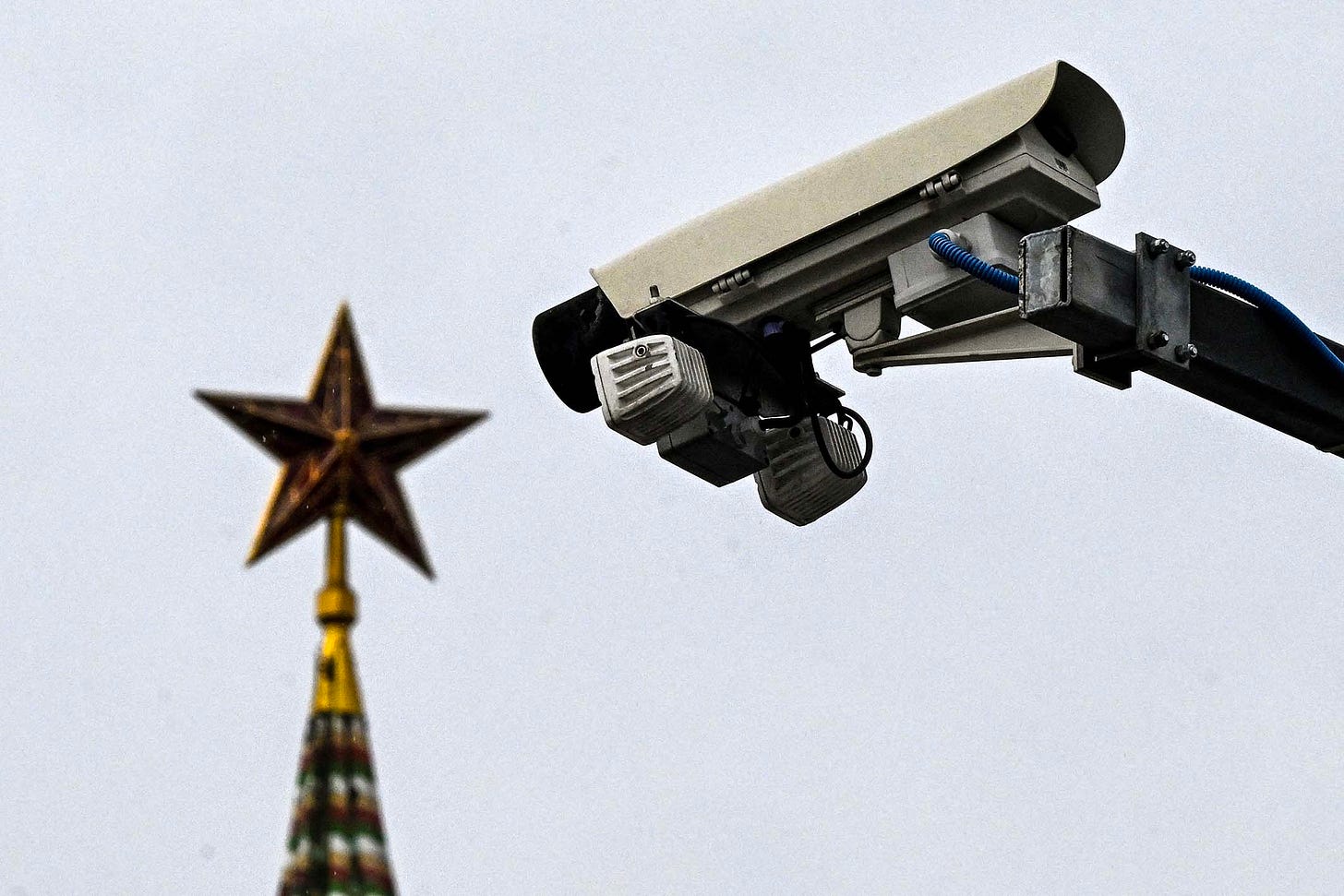Serving Putin – without even knowing it
African gig workers are shocked to learn that they may have unknowingly trained the systems Russia uses against protesters.
Marché Arends

A year ago, Kenyan software engineer Felix* quit his 9-to-5 job in search of something more flexible. A simple Google search for “how to earn money online” led him to a company called Toloka – a crowdsourcing and microtasking platform similar to Clickworker and Remotasks.
Freelance gig workers from around the world log on to the Toloka platform and perform tasks to train Artificial Intelligence.
With quick clicks, they teach the machine which images to associate with social concepts like family, adult-only entertainment, LGBTQIA+ people, joy and so on. For a bit more money they transcribe audio and translate texts.
For anything from 10 cents to $8 per task, Felix and other freelancers, mostly located in the Global South, are shaping the voice of this powerful technology. But they do not know the ends served by their tedious but seemingly innocuous tasks.
A 2023 investigation by The Bureau of Investigative Journalism (TBIJ) revealed one of those ends: Toloka was helping to develop the facial recognition software that the Russian government uses to track protests and arrest protesters.
Essentially, by signing up to Toloka and completing available tasks, gig workers were – without their knowledge or explicit consent – bolstering an authoritarian regime’s efforts to repress dissent.
Five past and present African freelancers on Toloka, speaking to The Continent on condition of anonymity, confirmed that they did not know what their work was being used for. Some were shocked by the revelation that their work could be linked to Russian surveillance of protesters.
“We were just given the tasks from the ‘clients’, ” says Laura* from South Africa. “We weren’t told who the clients were or why they needed it done.”
“No one ever knew what the end product would be,” says another South African freelancer, Thembiwe*.
Felix calls the revelations from the TBIJ investigation “dumbfounding”, adding that “nothing is revealed to freelancers beyond what they need to know about the tasks”.
Toloka disputes the findings of the TBIJ investigation, saying it does not do business in Russia and has no Russian clients. “We have never done business with sanctioned entities,” a representative of the platform told The Continent.
From Russia without love
Toloka is owned by the Netherlands-based Nebius Group, which until last month was called Yandex NV. Founded in Russia in 1997, the firm was best-known for the search engine commonly referred to as “Russia’s Google”: Yandex Search.
Three of Yandex’s former directors are currently under EU sanctions, including Alexey Komissarov, co-chair of the All-Russia People’s Front, a political coalition started by President Vladmir Putin in 2011 when he was prime minister. The front is reportedly providing support to Russia’s war in Ukraine.
Yandex’s billionaire co-founder Arkady Volozh was removed from the European Union sanctions list in February this year after saying he intended to cut ties with Russia. In July, Yandex sold all of its Russian assets, worth around $5-billion, to a consortium of Russian investors – the biggest corporate withdrawal from the country since the invasion of Ukraine.
Toloka says Nebius Group divested from its Russia-related businesses.
Between a rock and a hard place
Even putting aside TBIJ’s revelations about Russia, Toloka’s African freelancers are unhappy with their treatment by the company.
Felix is paid per task with the potential to make up to $7 per hour. The emphasis here is on “potential”.
“Each task is less than a dollar and if it gets rejected you don’t get paid,” Laura explains. “So, you could spend five hours working on a task, putting in all this effort and detail, and then end up not getting paid anything.”
Thandiwe admits that gig work is not known for its high pay, but says the company led people to believe their earning potential was much higher. “You’re not going to make what they say you’ll make unless you work 12-16 hours a day,” he says. Toloka claims that it is possible to make $100 per month from its click-work.
“Over two months I came away with about $7,” says Laura. “I have a full-time job, so I thought this would be a good way to make extra money. It wasn’t worth it.”
Toloka maintains that its rates are competitive and fair, and are determined by analysing data from Glassdoor, LinkedIn, and Mercer's Comptryx. It says that all its gig workers are able to see the tasks and fees before participating, and can start and stop work at any time.
But Felix say that in his experience, most gig workers can’t simply stop, even though all of those he knows are unhappy with the levels of exploitation in the industry. He says they feel they have “no choice but to keep working since most are breadwinners, myself included”.
Toloka is not alone in its alleged ill treatment of workers. Many other tech companies are cashing in on freelancers’ desperation in the Global South.
In July, The Continent reported on the experiences of Kenyan gig workers employed by Sama, an outsourcing firm which provided services to Open AI and Meta.
Their accounts echo those of Toloka’s freelancers, and highlight a disturbing pattern in big tech’s playbook – paying peanuts to workers in the global south while turning huge profits.




